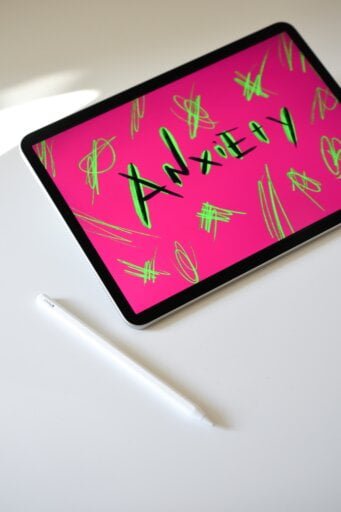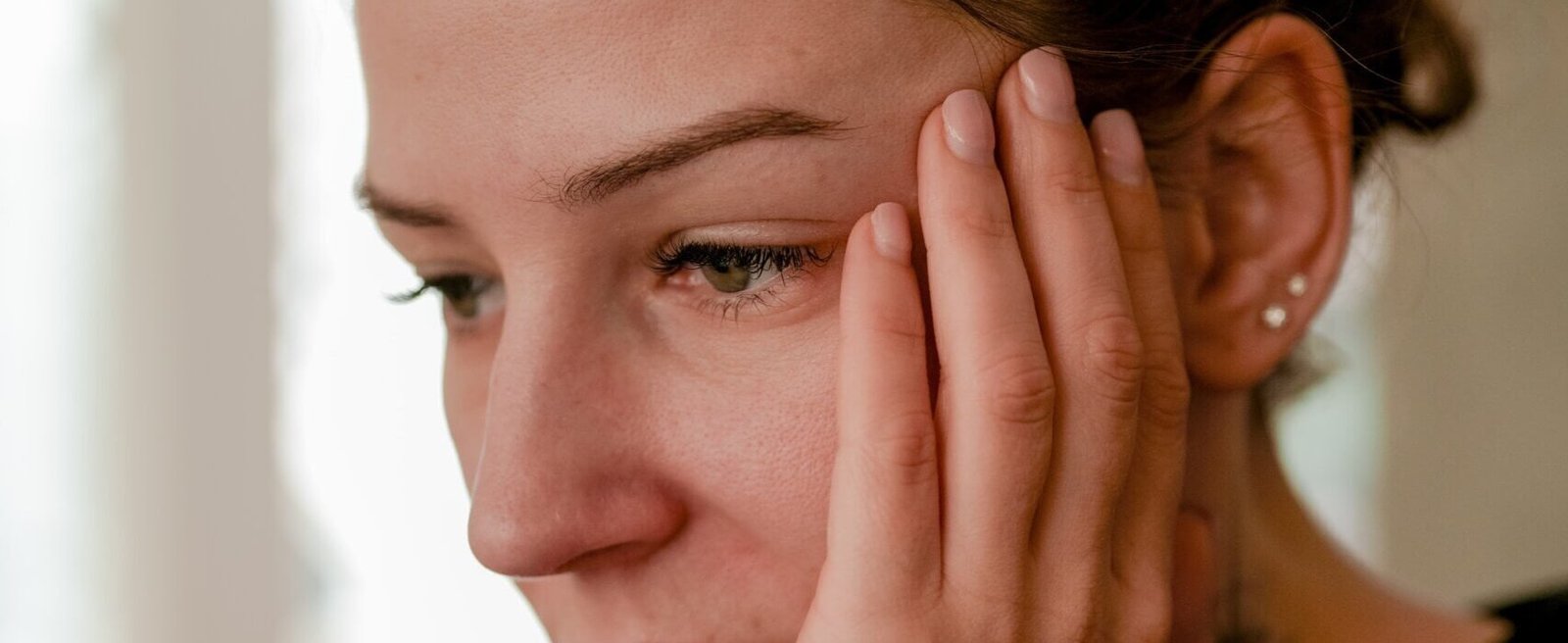Are you feeling overwhelmed and anxious? Propranolol might be the answer you’ve been looking for. If you’re wondering when is the best time to take propranolol to effectively manage your anxiety, you’ve come to the right place. In this article “When To Take Propranolol For Anxiety”, we will discuss the optimal timing for taking propranolol to ensure maximum relief from anxiety symptoms. So, let’s explore the right time to incorporate this medication into your daily routine and experience a newfound sense of calm and tranquility.
Understanding Propranolol
What is Propranolol?
Propranolol is a medication that falls under the class of drugs known as beta blockers. It is commonly used to treat a variety of conditions, including high blood pressure, migraines, and certain heart conditions. However, in recent years, it has gained attention for its potential effectiveness in managing anxiety symptoms. Propranolol works by blocking the effects of adrenaline on the body’s beta receptors, which helps to reduce the physical symptoms associated with anxiety, such as rapid heart rate, trembling, and sweating.
Mechanism of Action
The mechanism of action of propranolol involves its ability to bind to beta receptors in the body. These receptors are located in various organs, including the heart and blood vessels. By blocking the effects of adrenaline, propranolol helps to lower heart rate and blood pressure, reducing the physical manifestations of anxiety. It also works to prevent the release of norepinephrine, a stress hormone that contributes to anxiety symptoms. By modulating these physiological responses, propranolol helps individuals feel calmer and more in control during anxiety-provoking situations.
Medical Uses of Propranolol
Propranolol has a range of medical uses beyond anxiety management. It is commonly prescribed to individuals with high blood pressure, as it helps to lower blood pressure levels and reduce the risk of cardiovascular complications. Additionally, propranolol is frequently used in the treatment of migraines, as it can decrease the frequency and intensity of migraine attacks. It may also be recommended for individuals with certain heart conditions, such as arrhythmias or angina, to help regulate heart rate and reduce strain on the heart. It is important to note that propranolol should only be taken under the guidance and supervision of a healthcare professional.
Anxiety and Propranolol
Overview of Anxiety
Anxiety is a common mental health condition characterized by excessive worry, fear, and apprehension. It can manifest in various forms, such as generalized anxiety disorder (GAD), social anxiety disorder, or panic disorder. Anxiety can have a significant impact on a person’s daily life, affecting their relationships, work performance, and overall well-being. Symptoms of anxiety can be both psychological and physical, including racing thoughts, restlessness, difficulty concentrating, insomnia, and physical sensations like rapid heartbeat and shortness of breath.
How Does Propranolol Help with Anxiety?
Propranolol has shown promise in helping to manage anxiety symptoms by targeting the physical manifestations of anxiety. While it does not address the underlying causes of anxiety or provide direct relief from psychological symptoms, it can help alleviate the bodily reactions that often accompany anxiety. By blocking the effects of adrenaline, propranolol can reduce symptoms such as rapid heartbeat, trembling, and sweating, which can lead to a sense of calmness and improved functioning in anxiety-provoking situations.
Effectiveness of Propranolol in Treating Anxiety
The effectiveness of propranolol in treating anxiety varies from person to person. While it may be beneficial for some individuals in managing anxiety symptoms, it may not be as effective for others. The response to propranolol can depend on factors such as the severity of anxiety, individual physiology, and other coexisting medical conditions. It is important to consult with a healthcare professional to determine if propranolol is a suitable option for managing anxiety and to discuss other potential treatment approaches if necessary.

Determining the Right Time to Take Propranolol for Anxiety
Consulting a Healthcare Professional
When considering propranolol for anxiety management, it is crucial to consult with a healthcare professional. They will be able to evaluate your specific situation, assess the severity of your anxiety, and provide guidance on whether propranolol is a suitable option for you. They can also determine the appropriate dosage and frequency of administration based on your individual needs and symptoms.
Understanding Individual Needs and Symptoms
Every individual’s experience with anxiety is unique, and what works for one person may not work for another. When determining the right time to take propranolol for anxiety, it is important to carefully consider your individual needs and symptoms. Factors such as the frequency and intensity of anxiety episodes, the predictability of triggers, and the impact of anxiety on your daily life should all be taken into account. This information can help inform the timing of propranolol administration to optimize its effectiveness in managing anxiety symptoms.
Considering the Half-Life of Propranolol
The half-life of a medication refers to the time it takes for half of the drug to be eliminated from the body. Understanding the half-life of propranolol can be useful in determining the right time to take the medication for anxiety. Propranolol has a relatively short half-life of around 4-5 hours, which means that it may need to be taken multiple times throughout the day to maintain its therapeutic effect. Consulting with a healthcare professional can help determine the ideal dosing schedule based on the specific formulation of propranolol prescribed.
Factors to Consider When Taking Propranolol for Anxiety
Dose and Frequency
The appropriate dose and frequency of propranolol for anxiety management will depend on individual factors and should be determined by a healthcare professional. Starting at a low dose and gradually titrating upward is often recommended to assess the individual’s response and minimize potential side effects. Additionally, the frequency of administration may vary, ranging from a single daily dose to multiple doses throughout the day, depending on the severity and frequency of anxiety symptoms.
Food and Drug Interactions
Certain foods and medications can interact with propranolol and potentially affect its absorption and effectiveness. It is important to discuss any dietary restrictions, including the consumption of grapefruit or other citrus fruits, with your healthcare professional. They can guide you on how to best incorporate propranolol into your daily routine and advise on any necessary dietary modifications. Additionally, inform your healthcare professional about any other medications or supplements you are taking to ensure there are no potential interactions with propranolol.
Preexisting Medical Conditions
When taking propranolol for anxiety, it is vital to consider any preexisting medical conditions you may have. Propranolol can affect certain medical conditions, such as asthma, diabetes, and certain heart conditions, so it is crucial to disclose your medical history to your healthcare professional. They can evaluate the potential risks and benefits of using propranolol in your specific case and make appropriate recommendations.

Taking Propranolol Before an Anxiety-Inducing Event
Public Speaking
Public speaking can be a source of significant anxiety for many individuals. Taking propranolol before a public speaking engagement can help reduce the physical symptoms of anxiety, such as trembling, sweating, and a rapid heartbeat. It is important to consult with a healthcare professional to determine the appropriate timing and dosage of propranolol for this specific situation, as they can provide tailored guidance based on your individual needs.
Performing on Stage
For individuals involved in performing arts or stage productions, anxiety before a performance can interfere with their ability to deliver their best performance. Propranolol may be beneficial in reducing stage fright and the associated physical symptoms of anxiety. Planning ahead and taking propranolol as advised by a healthcare professional can help individuals feel more at ease and perform more confidently.
High-Stress Situations
In addition to public speaking and performing on stage, there are numerous high-stress situations in daily life that can trigger anxiety. This can include job interviews, important meetings, or social gatherings. In such situations, taking propranolol prior to the event can help manage the physical symptoms of anxiety and promote a greater sense of calm and control. However, it is important to note that propranolol should only be used as directed by a healthcare professional and should not replace the need for addressing underlying anxiety through therapy or other interventions.
Taking Propranolol as a Daily Medication for Anxiety
Dosage for Chronic Anxiety
For individuals with chronic anxiety, a healthcare professional may prescribe propranolol as a daily medication to be taken on an ongoing basis. The dosage for chronic anxiety will vary depending on the individual’s specific needs and response to the medication. Starting with a low dose and gradually increasing it may be necessary to find the optimal therapeutic level. Regular follow-ups with a healthcare professional will ensure that the dosage remains appropriate and effective over time.
Benefits of Regular Use
Taking propranolol as a daily medication for anxiety offers several benefits. By continuously blocking the physical manifestations of anxiety, individuals may experience a reduction in anxiety symptoms and an improved quality of life. Regular use of propranolol can help individuals manage anxiety on a day-to-day basis, allowing them to engage in their daily activities with greater ease and confidence.
Long-Term Considerations
When taking propranolol as a daily medication for anxiety, it is important to consider long-term implications. Regular use of beta blockers, such as propranolol, may cause certain physiological adaptations in the body over time. It is essential to discuss any potential long-term effects with a healthcare professional and monitor for any changes in heart rate, blood pressure, or other relevant indicators. Regular check-ups and open communication with a healthcare professional can help ensure the continued effectiveness and safety of propranolol as a long-term anxiety management solution.

Using Propranolol as-needed for Anxiety Symptoms
Intermittent Anxiety Episodes
For individuals who experience anxiety symptoms intermittently, such as during specific triggers or situational anxiety, using propranolol on an as-needed basis may be appropriate. In these cases, taking propranolol shortly before the anticipated anxiety-provoking event can help manage the physical symptoms and promote a sense of calmness. It is crucial to discuss the appropriate timing and dosage with a healthcare professional to ensure the effectiveness and safety of propranolol in these situations.
Managing Panic Attacks
Panic attacks can be extremely distressing and debilitating. Propranolol has shown effectiveness in reducing the physical symptoms associated with panic attacks, such as increased heart rate and trembling. For individuals prone to panic attacks, having propranolol available as a rescue medication to be taken at the onset of symptoms may help alleviate the intensity and duration of the panic attack. However, it is important to note that propranolol should not be the sole approach to managing panic attacks, and therapy or other interventions should be considered for long-term management.
Understanding Rebound Effects
It is important to be aware of potential rebound effects when using propranolol as-needed for anxiety symptoms. Rebound effects refer to the recurrence or worsening of symptoms once the medication wears off. While propranolol can effectively manage anxiety symptoms during its active duration, the body may compensate for its effects once the medication is eliminated. This can lead to a temporary increase in heart rate, blood pressure, and anxiety symptoms. Understanding rebound effects and discussing them with a healthcare professional can help develop a comprehensive approach to managing anxiety and minimize the impact of these effects.
Timing Propranolol Doses for Optimal Effectiveness
Time of Day
The timing of propranolol doses can significantly impact its effectiveness. For individuals taking propranolol as a daily medication, it is generally recommended to establish a consistent dosing schedule and take the medication at the same time each day. This can help maintain consistent blood levels of the medication and ensure its continuous therapeutic effect. However, individual variations and specific recommendations from a healthcare professional should also be considered when determining the best time of day to take propranolol.
Considering the Half-Life
As mentioned earlier, propranolol has a relatively short half-life of 4-5 hours. This means that its effects start to diminish after this duration, and another dose may be needed to maintain its effectiveness. Understanding the half-life of propranolol can guide the timing of doses, ensuring that the medication’s effects align with the intended purpose. It is advisable to consult with a healthcare professional to determine an appropriate dosing schedule based on the specific formulation of propranolol and individual needs.
Accommodating for Individual Variations
Individual variations in response to propranolol should be considered when determining the timing of doses. Factors such as metabolism, absorption rate, and individual tolerance levels can influence how quickly the medication takes effect and how long its effects last. Communicating your experience and discussing any concerns with a healthcare professional can help tailor the timing of propranolol doses to optimize its effectiveness in managing anxiety symptoms.
Tips for When To Take Propranolol For Anxiety
Follow Doctor’s Instructions
It is essential to follow the instructions provided by your healthcare professional when taking propranolol for anxiety. This includes adhering to the recommended dosage, frequency, and timing of doses. Deviating from the prescribed instructions can affect the medication’s efficacy and potentially lead to adverse effects. If you have any questions or concerns about your medication regimen, be sure to consult with your healthcare professional for guidance.
Taking with or without Food
Propranolol can be taken with or without food, depending on individual preference and tolerance. However, it is important to maintain consistency once a particular routine is established to ensure the medication’s optimal absorption and effectiveness. If you experience any gastrointestinal discomfort or have specific dietary restrictions, discuss them with your healthcare professional to determine the best approach for taking propranolol with or without food.
Avoiding Alcohol and Certain Medications
It is advisable to avoid consuming alcohol while taking propranolol, as it can increase the sedative effects of the medication and lead to excessive drowsiness or dizziness. Additionally, certain medications, such as other beta blockers or medications that interact with propranolol, should be avoided or used with caution. Inform your healthcare professional about any other medications or supplements you are taking to ensure their compatibility with propranolol and to avoid any potential interactions.
Possible Side Effects of Propranolol
Common Side Effects
As with any medication, propranolol can cause side effects. The most common side effects include fatigue, dizziness, constipation, nausea, and cold hands or feet. These side effects are generally mild and may subside as the body adjusts to the medication. However, if these side effects persist or worsen, it is important to inform your healthcare professional.
Rare Side Effects
While rare, propranolol may cause more severe or less common side effects, including changes in mood or mental health, nightmares, confusion, or difficulty breathing. If you experience any of these rare side effects, it is crucial to seek immediate medical attention and inform your healthcare professional.
When to Seek Medical Help
If you experience any severe or concerning side effects while taking propranolol, it is important to seek medical help. Additionally, if you have any preexisting medical conditions or concerns about the medication’s impact on your overall health, consult with your healthcare professional for appropriate guidance and monitoring.
In conclusion When To Take Propranolol For Anxiety
Propranolol can be a useful medication for managing anxiety symptoms. Its mechanism of action, medical uses, and effectiveness in treating anxiety depend on individual factors and should be discussed with a healthcare professional. Determining the right time to take propranolol for anxiety involves considering individual needs, symptoms, and the half-life of the medication. Factors such as dose and frequency, food and drug interactions, and preexisting medical conditions should be taken into account when taking propranolol for anxiety management.
Timing propranolol doses for optimal effectiveness, using it as-needed or daily medication, and understanding potential side effects are important considerations. Following the advice and instructions of a healthcare professional, adhering to prescribed routines, and communicating any concerns or questions can help ensure safe and effective use of propranolol for anxiety management.
Frequently Asked Questions:
- When is the best time to take propranolol for anxiety? The ideal time to take propranolol for anxiety is typically determined by your healthcare provider based on your specific needs. Follow their guidance for optimal results.
- Does propranolol stop the feeling of anxiety? Propranolol, a beta-blocker, can help alleviate physical symptoms of anxiety, such as a racing heart, but may not directly address the emotional aspects. It’s essential to discuss your symptoms with your healthcare provider.
- Does propranolol stop fight or flight? Propranolol can dampen the physiological effects of the fight-or-flight response, helping to control symptoms like increased heart rate and trembling associated with anxiety or stress.
- Is it safe to exercise on propranolol? Consult with your healthcare provider before combining propranolol with exercise. While generally safe, individual health factors may influence the decision.
- Does propranolol make you sleepy? Propranolol can cause drowsiness in some individuals. Pay attention to how your body responds, and inform your healthcare provider if you experience excessive sleepiness.
- Is propranolol a form of Xanax? No, propranolol is not a benzodiazepine like Xanax. It is a beta-blocker that works by blocking the effects of adrenaline.
- How much propranolol to stop anxiety? Dosage varies among individuals. Your healthcare provider will determine the appropriate dose based on your specific condition and response to the medication.
- Does propranolol block emotions? Propranolol primarily addresses physical symptoms of anxiety and doesn’t block emotions. Discuss emotional concerns with your healthcare provider for comprehensive support.
- Will I feel better after stopping propranolol? Your healthcare provider will guide you on tapering off propranolol if necessary. Individual responses may vary, and it’s essential to communicate any changes in symptoms.
- Can beta-blockers stop panic attacks? Beta-blockers like propranolol can be prescribed to help manage and prevent some symptoms associated with panic attacks, such as rapid heartbeat.
- Does propranolol work immediately? Propranolol may take some time to exert its full effects. Discuss the expected timeline with your healthcare provider and follow their recommendations.
- Does propranolol reduce cortisol? Propranolol can potentially reduce cortisol levels, as it affects the body’s stress response. However, individual responses may vary.
- Why do athletes take propranolol? Athletes may use propranolol to manage performance anxiety by reducing physiological symptoms such as trembling or increased heart rate.
- What cannot be taken with propranolol? Certain medications and substances may interact negatively with propranolol. Inform your healthcare provider of all medications, supplements, or substances you are taking.
- Can you have caffeine with propranolol for anxiety? Limiting caffeine intake is advisable, as it may enhance the effects of propranolol. Discuss your caffeine consumption with your healthcare provider.
- Is propranolol good before bed? Your healthcare provider will determine the appropriate timing for propranolol based on your individual needs. It can be taken as prescribed, whether in the morning, evening, or as directed.
- Why can’t I sleep after taking propranolol? If you experience sleep disturbances after taking propranolol, consult your healthcare provider. They can adjust the timing or dosage to minimize potential side effects.
- Does propranolol make you hungry? Propranolol does not typically affect hunger. If you notice changes in appetite, discuss them with your healthcare provider for personalized guidance.
- What does propranolol do to your mood? Propranolol primarily targets physical symptoms of anxiety and does not directly impact mood. If mood changes occur, consult your healthcare provider for assessment.
- Can I take 20mg of propranolol 3 times a day? Follow your healthcare provider’s prescribed dosage. If you have concerns or experience side effects, communicate with your healthcare provider for guidance.
- How long can you stay on beta-blockers? The duration of beta-blocker use depends on your specific condition and treatment plan. Regular follow-ups with your healthcare provider will guide the length of use.
- What are natural beta-blockers for anxiety? Certain lifestyle changes, such as regular exercise, adequate sleep, and stress management, can help naturally regulate anxiety symptoms.
- Are beta-blockers addictive? Beta-blockers are not addictive. However, it’s crucial to follow your healthcare provider’s instructions for use and potential discontinuation.
- Can I eat bananas with propranolol? Bananas can interact with propranolol, potentially enhancing its effects. Discuss dietary considerations with your healthcare provider.
- Does propranolol affect serotonin levels? Propranolol primarily affects the adrenergic system and does not directly influence serotonin levels.
- How can I sleep better with propranolol? Discuss any sleep disturbances with your healthcare provider. They may adjust the timing or dosage of propranolol to optimize both anxiety management and sleep.
Source: Anxiety
